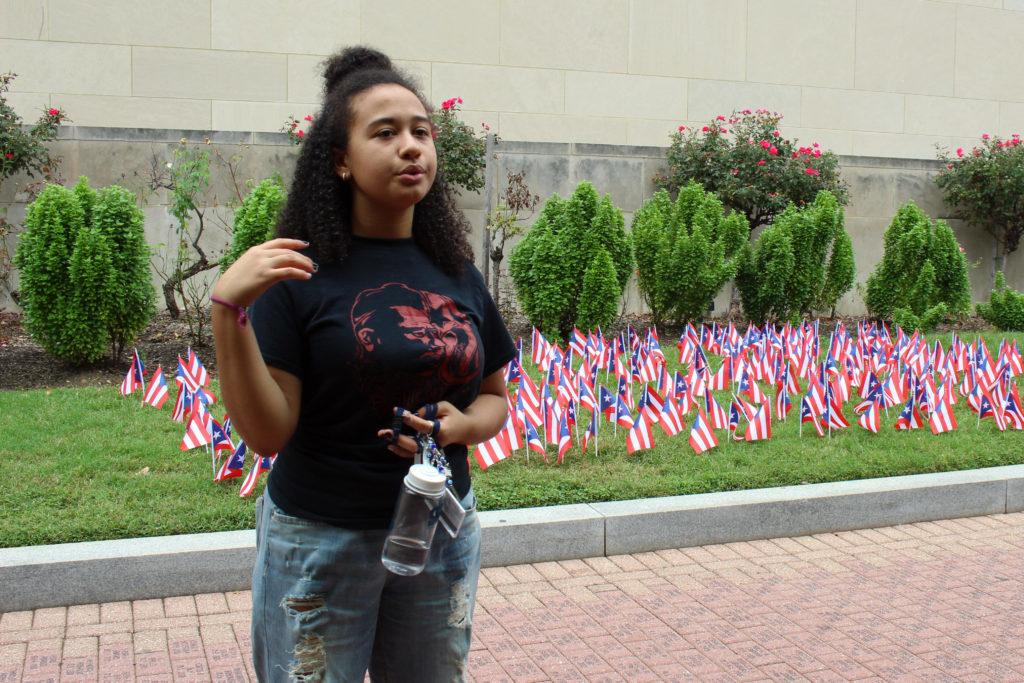Three student organizations held a vigil for the Puerto Rican victims of Hurricane Maria in Kogan Plaza Thursday.
Members of the GWU Racially and Ethnically Mixed Student Association, Fossil Free GW and Young Democratic Socialists of America at GW spoke to a gathering of 15 students about survivors’ experiences, the response to the hurricane and climate change. Attendees at the vigil started the event by planting 300 flags in Kogan in memory of the 2,975 victims of the hurricane that ravaged Puerto Rico in September 2017.
Jose Roman, a Puerto Rican junior and member of REMix, said Hurricane Maria devastated the island and disrupted people’s lifestyles.
“Hurricane Maria destroyed not just what was left of the island, but destroyed infrastructure, the aging infrastructure, the livelihood of many people that lived on the island,” Roman said.
Ivana Mowry-Mora, a junior and member of REMix, said the U.S. government’s response to the hurricane was an example of a historic pattern, where white and privileged people exploit minorities for economic gain and abandon them in times of crisis. The Trump administration has received widespread criticism for its response to the natural disaster.
Mowry-Mora said the aftermath of the hurricane – including the roughly 3,000 deaths – was exemplary of institutionalized racism and apathy from the mainland.
“It is impossible to see this without seeing the long history of white people claiming the land and rights and resources and blood, sweat and tears of people of color,” Mowry-Mora said.
The government of Puerto Rico increased its official death toll to 2,975 following the release of a study conducted by researchers at the Milken Institute School of Public Health.
Ariana MacMartin, a sophomore and member of YDSA GW, said the government’s response to Hurricane Harvey, which killed 88 people when it made landfall in Texas last year, sharply contrasted the reaction to Hurricane Maria.
Within 30 days, the government gave more than $1.5 billion to Texans who were impacted by the natural disaster, while critics have said the Trump administration deployed few – or underutilized – resources to Puerto Rico after Hurricane Maria.
“The United States needs to treat Puerto Rico with respect and dignity,” MacMartin said. “Puerto Rico deserves better and the United States just doesn’t care.”
Deniz Giray Gonzalez, a Puerto Rican freshman majoring in international affairs, said the hurricane exacerbated the stress of the college application process because instead of worrying about essays, she was worried about surviving.
Gonzalez said the hurricane prompted Puerto Rican youth to participate in society beyond politics alone. People began helping each other, not only through activism and protests, but in daily life as well, she said.
“People got to go out and talk more and share as friends,” Gonzalez said. “Neighbors got to know each other and share food, and so even though it was a critical situation, it showed a lot of fraternity and love and unity.”





